February 7 stands as one of history’s most eventful days, witnessing the rise and fall of empires, groundbreaking discoveries, and moments that shaped our modern world across centuries of human achievement.

Politics and Government Events on February 7
1962 – United States Bans All Cuban Imports and Exports
President John F. Kennedy’s administration imposed a comprehensive trade embargo against Cuba on this date. The economic blockade aimed to pressure Fidel Castro’s communist government through financial isolation.
This decisive action escalated Cold War tensions in the Caribbean region. The embargo would become one of the longest-standing trade restrictions in modern diplomatic history.
1974 – Grenada Gains Independence from United Kingdom
The Caribbean island nation of Grenada achieved full independence after centuries of British colonial rule. Prime Minister Eric Gairy led the new nation as it established sovereign governance structures.
The independence celebration marked the end of Britain’s direct control over the spice island. Grenada joined the Commonwealth of Nations while maintaining cultural ties to its former colonial power.
1986 – Twenty-Eight Years of One-Family Rule End in Haiti
President Jean-Claude Duvalier fled Haiti amid mounting popular uprising and international pressure. The departure ended nearly three decades of Duvalier family dictatorship that began with his father François.
Massive street demonstrations and economic collapse forced Baby Doc’s dramatic escape to France. Haiti entered a turbulent transition period seeking democratic governance after years of authoritarian rule.
1990 – Soviet Communist Party Agrees to Give Up Power Monopoly
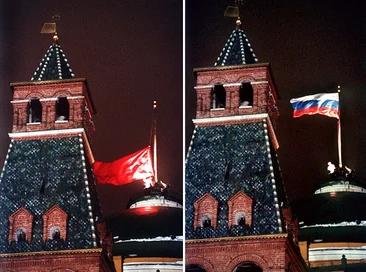
The Central Committee of the Soviet Communist Party voted to abandon its constitutionally guaranteed monopoly on political power. This landmark decision opened the door for multi-party democracy in the Soviet Union.
Mikhail Gorbachev’s reforms accelerated the dissolution of the one-party system. The historic vote marked a crucial step toward the eventual collapse of the Soviet Union.
1991 – Haiti’s First Democratic President Sworn In
Jean-Bertrand Aristide took the oath of office as Haiti’s first democratically elected president. The former priest won overwhelming popular support with promises of social reform and economic justice.
Aristide’s inauguration brought hope to millions of impoverished Haitians. His presidency represented a dramatic shift from the country’s long history of authoritarian rule.
1992 – Maastricht Treaty Signed Creating European Union

European leaders signed the Treaty on European Union in the Dutch city of Maastricht. The historic agreement established the European Union and laid groundwork for monetary union.
The treaty created new institutions and expanded cooperation beyond economic matters. It represented the most significant step toward European integration since the Treaty of Rome.
2013 – Mississippi Officially Certifies Thirteenth Amendment
The state of Mississippi became the last to officially certify the Thirteenth Amendment abolishing slavery. The formal ratification occurred 148 years after the amendment became law nationwide.
A clerical oversight had prevented the state from filing proper paperwork in 1995. The symbolic completion highlighted America’s ongoing struggle with its historical legacy of slavery.
Military and Naval History on February 7
1943 – Japanese Forces Complete Guadalcanal Evacuation
Imperial Japanese Navy forces successfully evacuated remaining army troops from Guadalcanal during Operation Ke. The withdrawal ended Japanese attempts to retake the strategic island from Allied forces.
The evacuation marked a turning point in the Pacific Theater of World War II. Allied victory at Guadalcanal demonstrated American capability to defeat Japanese forces in sustained combat.
1944 – German Counteroffensive Launched at Anzio
German forces launched a major counteroffensive against Allied troops at Anzio, Italy. The assault threatened to push the Allied beachhead back into the Mediterranean Sea.
Operation Shingle had established the beachhead weeks earlier behind German lines. The fierce German response demonstrated Wehrmacht determination to prevent Allied advance toward Rome.
1951 – Korean War Massacre of Suspected Communists
South Korean forces killed more than 700 suspected communist sympathizers in a mass execution. The massacre occurred during the height of anti-communist paranoia in the Korean War.
The killings reflected brutal suppression of political dissent during wartime. This tragic event highlighted the civilian cost of ideological conflict during the Korean peninsula’s division.
1991 – IRA Launches Mortar Attack on Downing Street
The Provisional IRA fired mortars at 10 Downing Street during a cabinet meeting. The attack targeted the heart of British government but failed to cause casualties.
One mortar exploded in the garden behind the Prime Minister’s residence. The bold assault demonstrated IRA capability to strike at Britain’s most secure government locations.
1995 – World Trade Center Bombing Mastermind Arrested

Pakistani authorities arrested Ramzi Yousef, the mastermind behind the 1993 World Trade Center bombing. His capture in Islamabad ended a massive international manhunt.
Yousef’s arrest prevented additional terrorist attacks he was planning. The successful operation demonstrated growing international cooperation in counterterrorism efforts.
Science and Discovery Milestones on February 7
1979 – Pluto Moves Inside Neptune’s Orbit
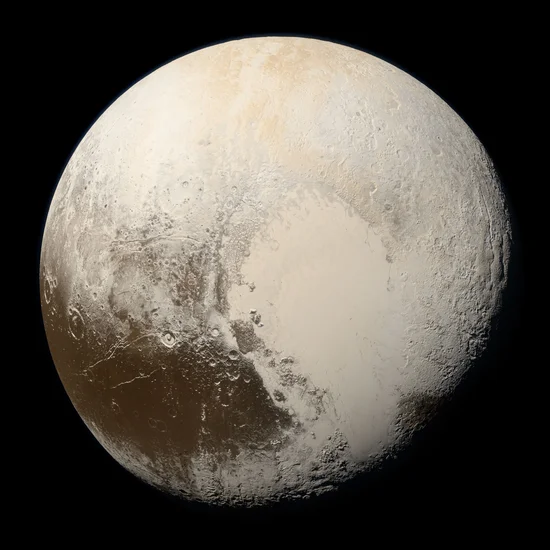
Pluto crossed inside Neptune’s orbital path for the first time since either planet was discovered. This rare astronomical event occurs approximately every 248 years in Pluto’s elliptical orbit.
The crossing meant Neptune temporarily became the solar system’s outermost planet. Astronomers worldwide observed this unusual planetary alignment with great scientific interest.
1984 – First Untethered Space Walk Performed
Astronauts Bruce McCandless II and Robert Stewart conducted the first untethered spacewalk using the Manned Maneuvering Unit. The historic EVA during STS-41-B mission demonstrated unprecedented freedom of movement in space.
McCandless flew up to 320 feet from the Space Shuttle Challenger without safety tethers. The successful test opened new possibilities for satellite repair and space construction missions.
2001 – Space Shuttle Atlantis Launches with Destiny Module
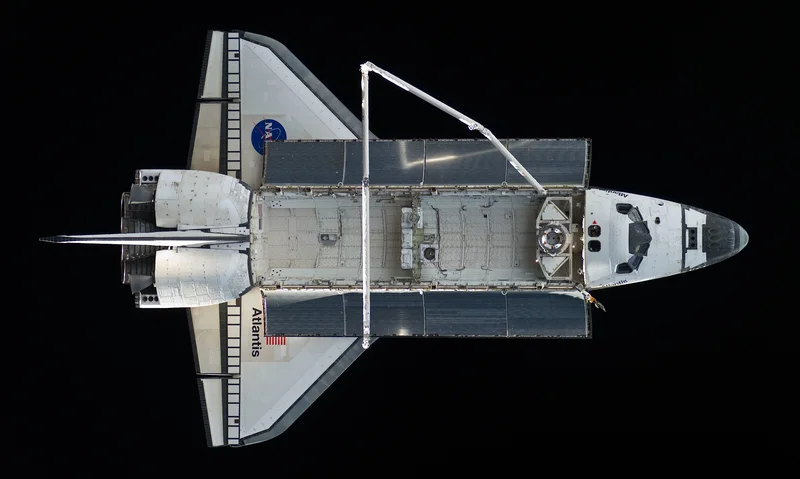
Space Shuttle Atlantis launched on mission STS-98 carrying the Destiny laboratory to the International Space Station. The mission delivered America’s primary research facility for the orbital laboratory.
The Destiny module significantly expanded scientific capabilities aboard the ISS. Installation of the laboratory marked a crucial milestone in international space cooperation.
2014 – Ancient Footprints Discovered in England
Scientists announced the discovery of 800,000-year-old hominid footprints in Norfolk, England. The Happisburgh footprints became the oldest known human ancestor tracks outside Africa.
The remarkable preservation occurred in ancient estuary sediments. This discovery pushed back the timeline of early human presence in northern Europe by hundreds of thousands of years.
Cultural and Arts Events on February 7
1940 – Walt Disney’s Pinocchio Premieres
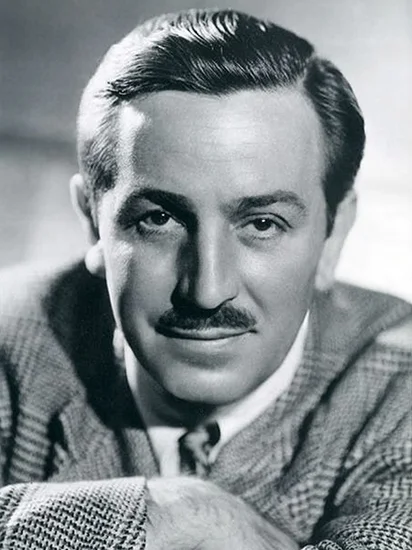
Disney’s second full-length animated feature film Pinocchio premiered to critical acclaim. The movie showcased groundbreaking animation techniques and memorable musical numbers.
The film’s technical innovations set new standards for animated cinema. Pinocchio became a beloved classic that influenced generations of animators and filmmakers worldwide.
1964 – The Beatles Land in America

The Beatles arrived at the newly renamed John F. Kennedy International Airport for their first American tour. Thousands of screaming fans welcomed the British band amid unprecedented media coverage.
The arrival marked the beginning of Beatlemania in the United States. Their appearance launched the British Invasion that transformed American popular music in the 1960s.
Religious and Social Events on February 7
1999 – Crown Prince Abdullah Becomes King of Jordan
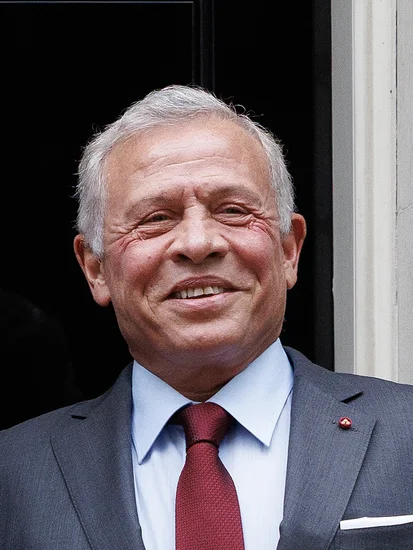
Crown Prince Abdullah ascended to the throne following the death of his father King Hussein. The transition maintained stability in the strategically important Middle Eastern kingdom.
Abdullah’s coronation continued Jordan’s Hashemite dynasty leadership. The new king faced challenges including regional conflicts and economic development needs.
2009 – Victoria Bushfires Devastate Australia
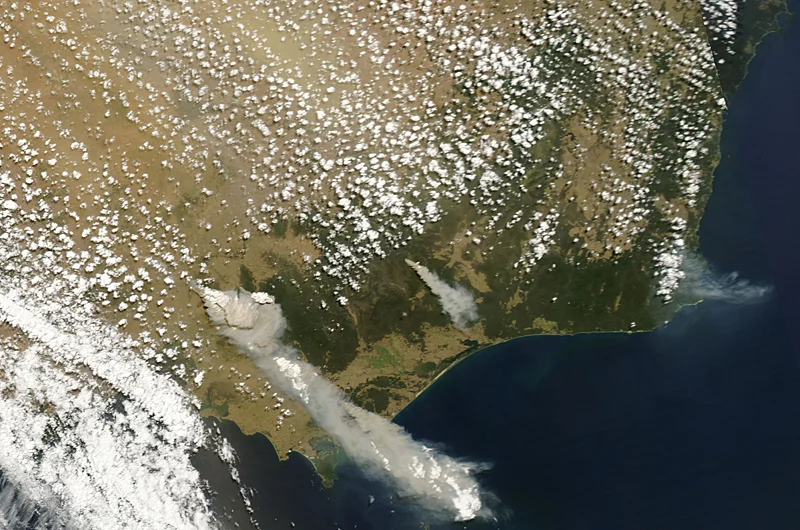
Catastrophic bushfires swept through Victoria, Australia, killing 173 people in the nation’s worst natural disaster. The Black Saturday fires destroyed entire communities and thousands of homes.
Extreme weather conditions created unprecedented fire behavior. The tragedy led to major reforms in Australia’s bushfire prevention and emergency response systems.
2021 – Uttarakhand Flood Begins in India
A devastating flood began in Uttarakhand state after a glacier burst in the Himalayas. The disaster killed over 200 people and highlighted climate change impacts on mountain regions.
The flood destroyed hydroelectric projects and infrastructure. Environmental scientists linked the tragedy to global warming effects on Himalayan glacial stability.
Business and Economic Events on February 7
1904 – Great Baltimore Fire Begins
A massive fire erupted in Baltimore, Maryland, eventually destroying over 1,500 buildings in 30 hours. The conflagration devastated the city’s business district and caused millions in damage.
The fire started in a downtown warehouse and quickly spread due to strong winds. Baltimore’s recovery efforts transformed the city’s architecture and firefighting capabilities.
1938 – Harvey Firestone Dies
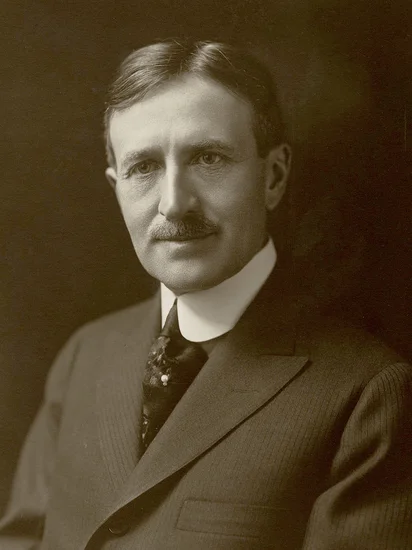
Harvey Samuel Firestone, founder of the Firestone Tire and Rubber Company, passed away at age 69. His innovations revolutionized tire manufacturing and automobile industry development.
Firestone built one of America’s largest tire companies from modest beginnings. His business partnerships with Henry Ford helped establish the automotive industry’s foundation.
Transportation and Infrastructure on February 7
1966 – Great Fire of Iloilo Destroys Philippine City
A devastating fire broke out in a lumber yard on Iznart Street in Iloilo City, Philippines. The blaze burned for almost half a day, destroying three-quarters of the City Proper area.
Property damage reached 50 million pesos as flames consumed historic buildings. The disaster prompted major urban planning reforms and improved fire prevention measures.
1981 – Plane Crash at Pushkin Airport

A commercial aircraft crashed at Pushkin Airport, killing all 50 people aboard including 16 Pacific Fleet members. The tragedy highlighted aviation safety concerns in the Soviet Union.
The crash occurred during difficult weather conditions. Investigation findings led to improved safety protocols for military and civilian aviation operations.
2016 – North Korea Launches Satellite
North Korea launched the Kwangmyŏngsŏng-4 satellite into orbit, violating multiple UN treaties. The space launch drew international condemnation and increased regional tensions.
The satellite launch demonstrated North Korea’s advancing ballistic missile capabilities. International observers viewed the mission as cover for weapons development testing.
Sports and Recreation on February 7
1959 – Baseball Legend Nap Lajoie Dies

Napoleon “Nap” Lajoie, Hall of Fame second baseman, passed away at age 84. His career spanned baseball’s deadball era and early modern period with remarkable statistical achievements.
Lajoie’s .338 career batting average ranks among baseball’s all-time greats. The American League briefly called itself the “Lajoie League” in his honor.
2015 – Basketball Coach Dean Smith Dies
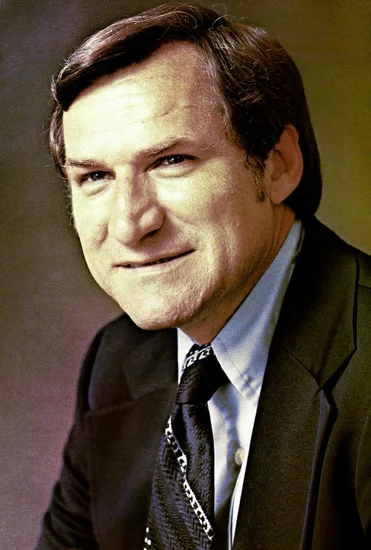
Dean Smith, legendary University of North Carolina basketball coach, died at age 83. His coaching career produced 879 victories and two NCAA championships.
Smith pioneered innovative strategies and emphasized academic achievement. His influence extended beyond basketball through civil rights advocacy and player development.
2019 – Baseball Hall of Famer Frank Robinson Dies

Frank Robinson, first African American manager in Major League Baseball, passed away at age 83. His playing career included 586 home runs and Triple Crown honors.
Robinson broke baseball’s managerial color barrier with the Cleveland Indians. His leadership both on and off the field advanced racial integration in professional sports.
Notable Births on February 7
1906 – Puyi, Last Emperor of China
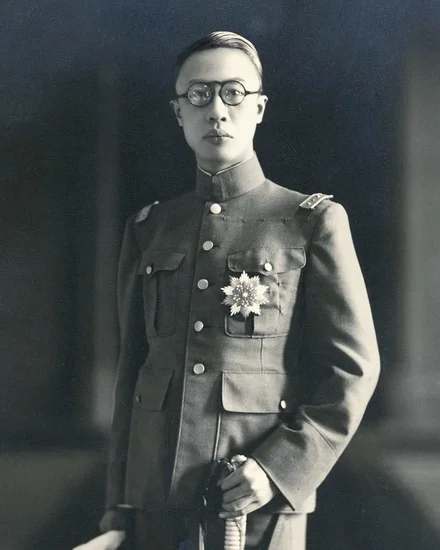
Puyi, the final emperor of China’s Qing Dynasty, was born in the Forbidden City. He ascended to the throne at age two but abdicated during the Chinese Revolution.
His extraordinary life included periods as puppet ruler of Manchukuo under Japanese occupation. Puyi’s story became the subject of international films and historical studies.
1920 – An Wang, Computer Pioneer
An Wang entered the world in Shanghai, China, before immigrating to America. His innovations in computer technology revolutionized word processing and data storage.
Wang founded Wang Laboratories, which became a major force in office computing. His magnetic core memory invention became fundamental to early computer development.
1962 – Garth Brooks, Country Music Superstar

Garth Brooks was born in Tulsa, Oklahoma, destined to become country music’s best-selling artist. His energetic performances and crossover appeal transformed the genre.
Brooks sold over 170 million albums worldwide during his career. His innovative marketing strategies and concert productions redefined country music entertainment.
1969 – Chris Rock, Comedian and Actor

Chris Rock was born in Andrews, South Carolina, before moving to Brooklyn, New York. His observational comedy and social commentary made him one of America’s most influential comedians.
Rock’s stand-up specials and film appearances earned critical acclaim and commercial success. His comedy tackles race relations and social issues with sharp wit.
1978 – Ashton Kutcher, Actor and Entrepreneur

Ashton Kutcher was born in Cedar Rapids, Iowa, eventually becoming a Hollywood star and tech investor. His television and film career launched from modeling beginnings.
Kutcher transitioned from entertainment to successful technology investments. His venture capital activities focused on emerging social media and technology companies.
Notable Deaths on February 7
1920 – Admiral Alexander Kolchak Executed
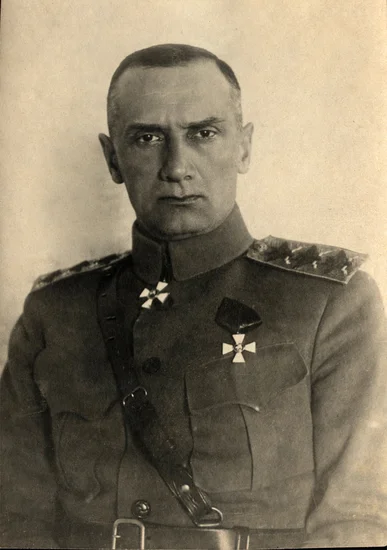
Admiral Alexander Kolchak, leader of anti-Bolshevik forces during the Russian Civil War, was executed by firing squad. His death marked the end of the White Army’s most prominent leader.
Kolchak had declared himself Supreme Ruler of Russia during the civil war. His execution in Siberia effectively ended organized resistance to Bolshevik control.
1999 – King Hussein of Jordan Dies
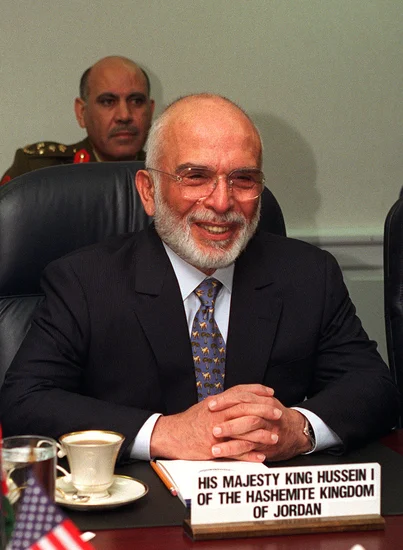
King Hussein of Jordan passed away after a 46-year reign, leaving behind a legacy of regional stability. His death ended one of the Middle East’s longest-serving monarchies.
Hussein successfully navigated numerous regional conflicts and maintained Jordan’s independence. His moderate diplomacy earned international respect and preserved national sovereignty.
2020 – Dr. Li Wenliang Dies from COVID-19

Dr. Li Wenliang, the Chinese ophthalmologist who first warned about COVID-19, died from the virus. His death sparked international outrage and demands for transparency.
Li had been silenced by authorities for sharing early warnings about the outbreak. His death became a symbol of the importance of scientific freedom and public health communication.
2019 – Actor Albert Finney Dies

Albert Finney, the acclaimed British actor, passed away at age 82 after a distinguished career. His performances in film and theater earned multiple award nominations.
Finney’s roles ranged from kitchen sink dramas to Hollywood blockbusters. His refusal to accept a knighthood demonstrated his commitment to artistic independence.
Holidays and Observances on February 7
Independence Day in Grenada
Grenada celebrates its independence from the United Kingdom achieved in 1974. The Caribbean nation commemorates the end of British colonial rule with national festivities.
The celebration includes parades, cultural performances, and official ceremonies. Grenadian communities worldwide participate in marking their nation’s sovereignty.
National Black HIV/AIDS Awareness Day in United States
The United States observes National Black HIV/AIDS Awareness Day to address health disparities. The observance promotes education, testing, and treatment in African American communities.
Health organizations coordinate outreach programs and prevention campaigns. The day highlights ongoing efforts to reduce HIV transmission and improve healthcare access.
Christian Feast Days
The Christian calendar commemorates several saints on February 7, including Blessed Pope Pius IX. Eastern Orthodox churches observe liturgical readings specific to this date.
Various Christian denominations honor martyrs and confessors throughout church history. The observances include special prayers and commemorative services worldwide.
